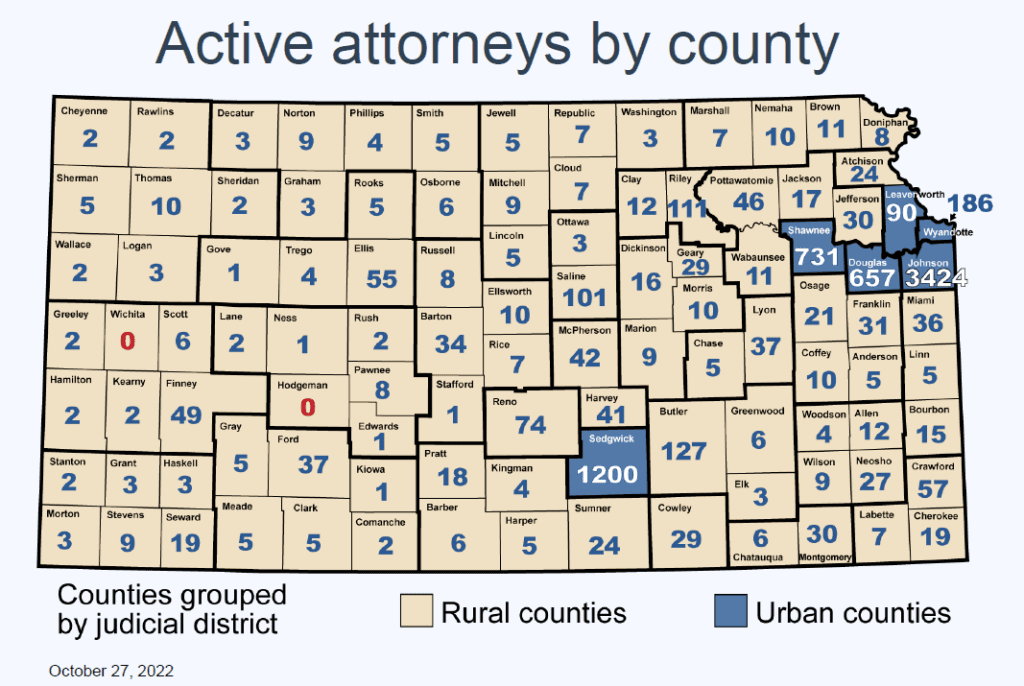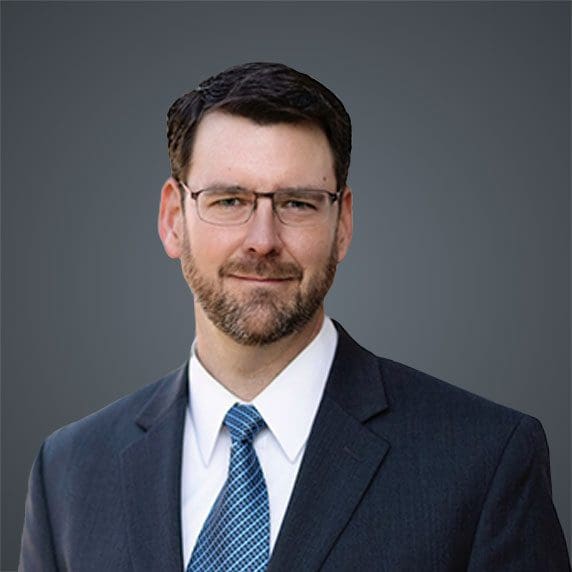Many attorneys’ legal careers are tied to a specific location. Many clients have limited access to legal counsel because of their location. But… for several practice areas, this doesn’t have to be the case. Legal technology and modern law firms help lawyers unlock their legal career potential by removing this location dependency and providing clients in legal deserts with access to legal counsel without leaving their homes.
The first two parts of this Unlocking Your Legal Career Potential series discussed the power of autonomy and re-aligning financial incentives within law firms to create individualized legal services to clients. The final part of this series will cover how modern law firms offer a solution to growing legal deserts across the US while expanding attorneys’ potential network by removing geographical constraints.
Removing Geographical Constraints
Law firms have been highly location-based for centuries. This makes sense: attorneys are required to have a license in the specific state or jurisdiction where they practice. Local laws and courthouse procedures, especially from a litigation perspective, can vary by town, county, and even courtroom. The reality is most attorneys work with client matters involving federal issues, state-wide laws, or multiple jurisdictions. For these types of issues, limiting clients to a local law firm when they could have access to attorneys across the state (or country, depending on the issue), can result in attorneys and clients that are basically forced into an engagement because they feel they don’t have other options.
In many rural areas, geographical limitations have created legal deserts where clients don’t have access to legal counsel they need and attorneys are limited in their referral network. The largest population of US attorneys are in New York and California (home to 27% of all lawyers in the US – a majority of who are in major metropolitan areas). On the other hand, 10 states are losing attorneys each year; Alabama has the most significant decrease, losing 15% of their attorneys in 2022.
To further illustrate the effects of legal deserts, the Kansas Rural Justice Initiative Committee created a map of active attorneys by county:

As of 2022, two Kansas counties have zero active attorneys and about 40 counties have only 1-5 attorneys. Rural attorneys may provide legal services on a broad range of legal issues and not be as specialized as attorneys in urban areas. As many attorneys narrow into more specialized practice areas, residents of rural areas would either not have access to these specialized legal services or be required to travel across the state when they need an attorney for their specific matters.
The concept of legal deserts across the US is not unique to Kansas. In Nebraska, a dozen counties have zero active attorneys and the legal desert is expected to spread to more counties over the next 5 years as rural attorneys continue to retire. In the past, it seemed the only solution was to create incentives for new attorneys to work in rural communities. Today, the implementation of courtroom technology and remote working capabilities within law firms offer more immediate relief to people that currently have no or limited access to legal services. A large part of this relief is access to virtual law firms.
The virtual law firm model can promote access to legal services while also helping attorneys in rural areas grow their practice in four ways:
1. Attorneys in rural areas have an established and trusted network of referrals nationwide.
- When rural attorneys’ clients require legal counsel in a different practice area or jurisdiction, attorneys can confidently refer them to a trusted colleague. This improves client retention for rural attorneys because clients do not need to seek out a separate law firm located in a large city; they can retain their local attorney while receiving full service legal counsel from attorneys in other areas when needed.
2. Clients located in legal deserts have access to attorneys across the state (or even the country) without the need to travel.
- Oftentimes, clients without a relationship with a local attorney choose to put off seeking legal services until it’s too late. The virtual law firm model helps those in rural areas easily access full-service firms that traditionally would only be available in major metropolitan areas and at major metropolitan area rates.
3. Attorneys located in metropolitan areas have a network of lawyers with more experience in rural legal matters.
- If a lawyer in a city has a client with a litigation matter located in a more rural county, they can refer this matter to an attorney in that specific location or enter into a joint engagement where they work together in a virtual capacity to fully represent the same client. This is also helpful for client matters such as location-specific agriculture laws, mineral rights, hunting leases, complex real estate transactions, estate planning, family matters, etc. Many established attorneys in rural areas build their practices on these specific matters and are great referrals/resources for metropolitan-area attorneys.
4. Reducing the cost of legal services for the communities we serve.
- One of the reasons these legal deserts are prohibitive to access to legal care is they often require clients in rural areas to pay the hourly rates of metropolitan-area attorneys. The virtual law firm gives clients an opportunity to not only find an attorney that already has reduced overhead due to the business model of a modern law firm, they can also find attorneys located elsewhere that may offer more competitive rates. Likewise, clients located in metropolitan areas have access to attorneys across their state that offer more competitive rates than their local attorneys.
We understand a virtual law firm can’t alleviate every need for people located in legal deserts, especially when considering ramifications when it comes to the unlicensed practice of law. However, these firms do offer an opportunity to provide counsel to legal deserts for a wide range of client matters.
Modern law firms open the door to providing more options for attorneys and clients who currently feel they are very limited in their choice of representation. Law firms that have re-aligned financial incentives to encourage collaboration and attorneys’ relationships with their client create new opportunities for everyone involved. The ability to enter into joint engagements with local attorneys and a nationwide/international referral network has become a major shift towards reducing the effects of legal deserts and improving access to justice.
Providing attorneys with autonomy, incentives that focus on client representation, and location independence work together to unlock the potential for legal careers while drastically improving relationships with clients. Attorneys start their careers to serve others by using their skillset and knowledge to navigate complex legal issues. By shifting the focus of law firms towards the representation of clients, attorneys actually enjoy their job again. Embracing this love for law results in happier lawyers that are excited to problem solve with their clients each day. And, happier attorneys create better work product (or at least, that’s what we’ve personally experienced).
You can learn more about Practus here or learn more about us on our bio pages: Molly Aspan & Chris Lange.







